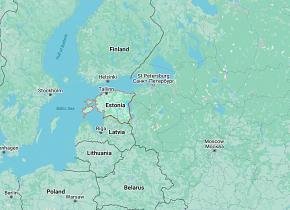Transgender Americans are more likely to be unemployed and poor
The United States Supreme Court will issue a ruling this year in a landmark case that will determine whether transgender people – individuals whose sex assigned at birth does not match their current innate sense of being male, female, both or neither – are protected by federal law from employment discrimination.
At stake is whether transgender individuals can reasonably earn a living without fear of losing their jobs simply because they are transgender.
Our new study, published on Feb. 11, suggests that such protections are sorely needed. On nearly all measures of economic and social well-being, transgender people do much worse.
Little is known about transgender people
We are scholars of economics, health and LGBT populations who wanted to find out about how transgender people fare economically.
A growing body of research on sexual minorities has steadily advanced over the past 25 years. However, when we first started working on this research project three years ago, we found little published work on the economic lives of transgender people.
Most research that did exist came only from studies of one or two progressive-leaning states, such as California or Massachusetts, or used “convenience†or “snowball†samples of transgender people where participants are recruited through social networks.
These types of data are useful, but they might not accurately reflect the general transgender population in the United States.
What we found
This is where our study came in.
We used data from an annual telephone survey of over 400,000 individuals in the United States that asks people about their employment, income, health insurance coverage and overall health. It’s called the Center for Disease Control and Prevention’s Behavioral Risk Factor Surveillance Survey.
Starting in 2014, this survey gave states the option to ask respondents their sexual orientation and gender identity. When asked “Are you transgender?†over 2,100 adults responded “yes.â€
Although this is only a fraction of 1% of the total survey sample, this is a much larger sample of transgender people than has been used in other survey-based studies. And, importantly, it allowed us to examine transgender individuals from states as diverse as Pennsylvania, Oklahoma, Idaho and Florida.
The most consistent pattern we found is that individuals who described themselves as transgender did much worse in aspects of their lives that affect their economic well-being – like educational attainment, employment and poverty status – than otherwise comparable individuals who did not identify as transgender.
This was especially true for employment. Transgender people were 11 percentage points less likely to be working compared to nontransgender, or cisgender, people.
We found that this effect was driven by two forces: Transgender people were more likely to be unemployed – that is, they would like to work but are not currently working – and much more likely to report that they are unable to work.
We speculate that transgender people may be unable to work due to a disability, poor health, lack of transportation or other structural barriers.
It’s also possible that transgender people have been turned away so many times by potential employers – possibly due to discrimination – that they are what economists aptly refer to as “discouraged,†and thus they report that they are “unable to (find) work.â€
Our results also showed that transgender people had much lower rates of college education than nontransgender people. While 28% of nontransgender people in the survey said they had a college education, the same was true for only 14% of transgender respondents.
Even after accounting for lower college education rates, we found that transgender people had higher rates of poverty and worse health than otherwise comparable individuals who did not identify as transgender.
Comments
There are 0 comments on this post















